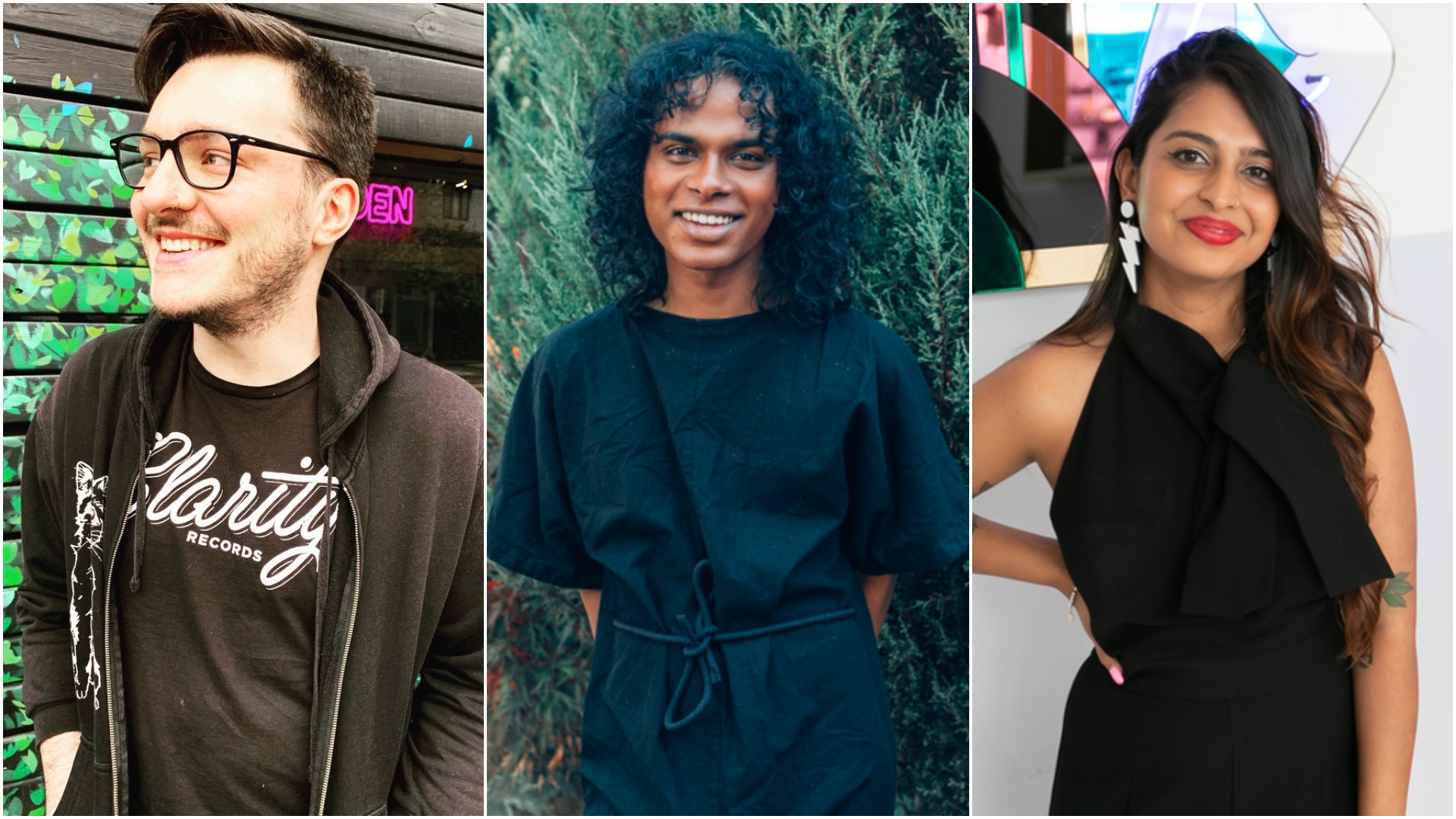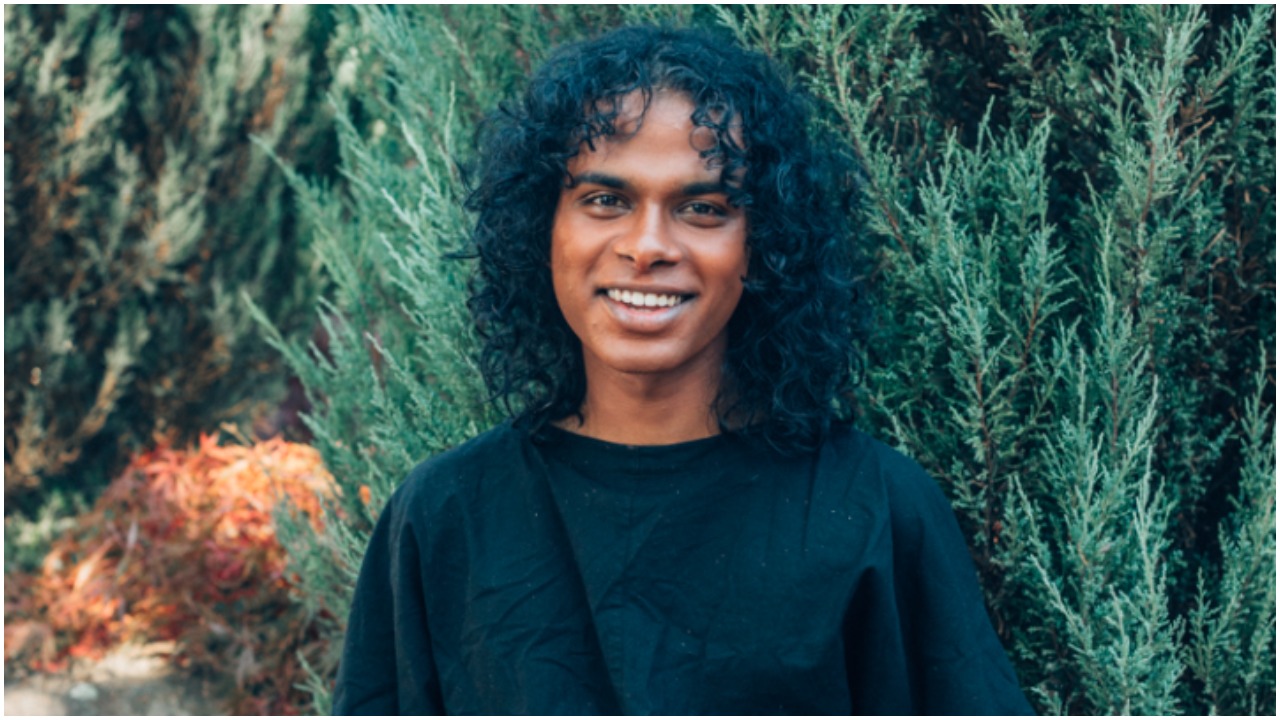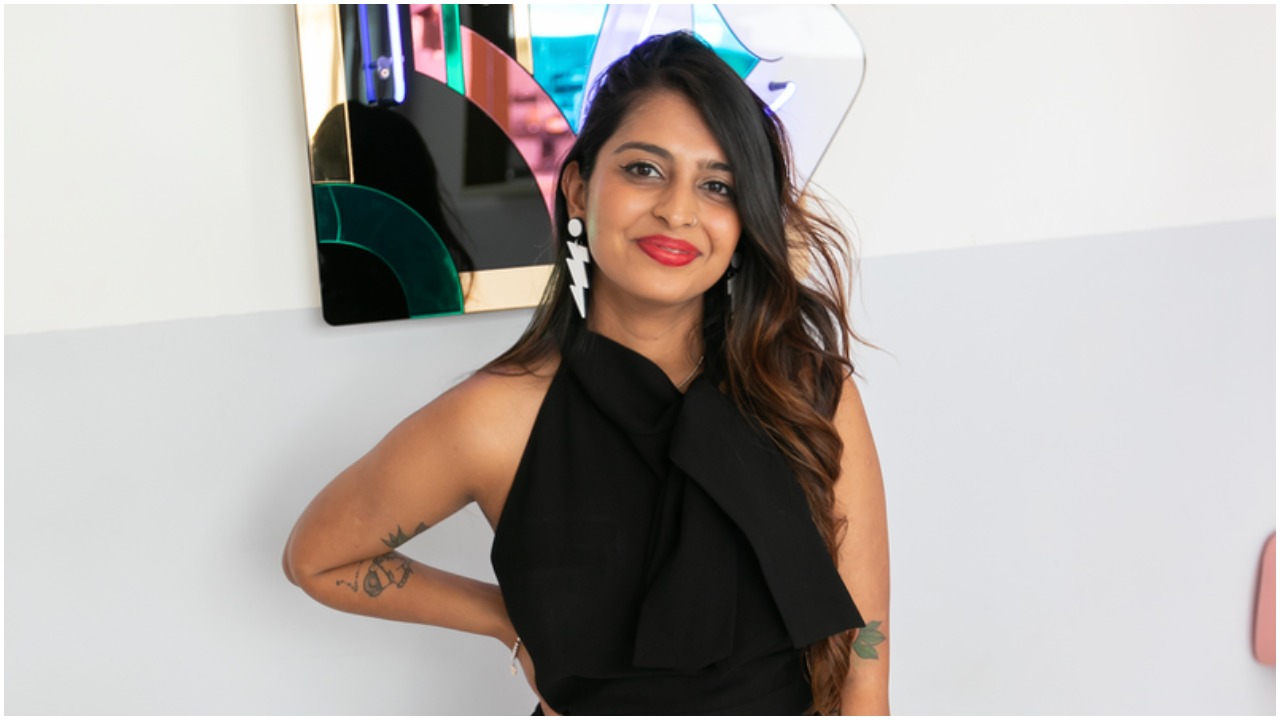TMN 30 Under 30: Meet your final batch of winners!

The Australian music industry is in dire need of young, fresh minds, according to quite a few of our TMN 30 Under 30 winners – and as luck would have it, today’s batch of winners are just that.
Tyler Jenke, Udaravi Widanapathirana and Uppy Chatterjee are all champions of a more fair industry which is a safer and more profitable space for artists as well as those slogging away behind the scenes.
These three are already acting as powerful voices for change in the industry, and we can’t wait to see what they do next.
Tyler Jenke, The Brag Media

Tyler Jenke says his career in the music industry happened almost entirely by accident. His university plans fell apart and someone encouraged him to instead pursue music writing.
He started as an intern at Tone Deaf in 2015 and eventually landed a full-time position in 2017. By 2019, he was news director, and when The Brag Media revived Rolling Stone in Australia, he became editor.
Jenke says he still struggles with imposter syndrome, but also knows that going from intern to editor that quickly is something to be proud of – and something which comes with great responsibility.
“With a responsibility to serve as one of the most prominent music journalists for one of the most-recognised brands in the world, I feel I’m in prime position to step up to the plate in order to help guide the music industry into what is yet to come,” he says.
But what are the biggest challenges facing the music industry, according to Tyler?
“Over the last year, it’s been proven that the local industry is a resilient entity.
“When COVID-19 took hold, the scene went into crisis mode and countless members of the local music family lost increasingly-large amounts of work on an almost hourly basis. Since then, we’ve seen the industry reach its lowest point, and we’ve seen its slow revival take place, with 2021 bringing with it a cautious sense of normalcy.
“However, even as we slowly return to what the ‘good old days’ used to look like, the music industry is still facing massive changes. In addition to having to fight tooth and nail to be considered a vital part of the Australian culture at the best of times, the current climate has seen the importance of its need for support amplified beyond belief.
“While venues still struggle with capacity restrictions, artists still aim to return to the stage and studio, and while sport is still unfairly championed above the music industry, it’s clear that the biggest struggle faced by the Australian music scene in 2021 is its need to be considered a vital part of not only Australian culture, but also the economy.
“Of course, the (unfortunately) common issues of inequality, a lack of diversity, mental health, and more still prevail, and they remain priorities that need to be addressed urgently. However, it’s pointless to fight for those affected by these issues if the industry disappears.
“Undoubtedly, the local industry is resilient, and it’s slowly returning to its former glory after one hell of a year. It’s something to be proud of, and I can only hope that the likes of the State and Federal Governments (in addition to the general public) begin to treat the industry we love with the respect and love that it needs and deserves.”
Udaravi Widanapathirana, su:ku:ya

Udaravi Widanapathirana has been a publicist, a consultant music programmer, a panel speaker, a business founder, a venue booker, a label consultant and an artist manager.
Plus, they finally finished that economics degree they’d been putting off to focus on their music industry career.
With that box finally ticked, they’re keen to explore new financial models which might lessen the high-stakes nature of the industry and make being an artist more sustainable.
And all this must be done, Widanapathirana says, with integrity and respect.
“I’m proudly Sri Lankan, I’m also non-binary and I believe through my lived experience I understand how to respectfully and responsibly shepherd the diverse artists I manage through this industry,” Widanapathirana says.
“This industry is one of relationships, and I’m proud of the way I operate. It is full of atypical secrecy, power plays, patronisation and undermining with a smile. To a point it’s why many agreements and systems, as well as ethical conduct in the industry is something out of Mad Men. I find it is effective to be emotionally intelligent, transparent and empathetic towards your peers.”
But what are the biggest challenges facing the music industry, according to Udaravi?
“I have worked with marginalised artists for the entirety of my career and am proud to represent their interests and movements through the industry.
“I whole heartedly believe representation is important for cultural change. An artist’s beliefs and values influence how local communities treat each other, but also how masses of people make space and understand each other. There is a severe lack of social mobility in the music industry (obviously due to the fact it’s market orientated). I do believe success and representation of minority artists will benefit cultural relations within our broader society, but only a handful of artists can have multifaceted, worldwide success. Even if diverse artists rise to the top, it does not necessarily correspond to the financial empowerment of minority artists as a whole.
“The industry still follows a ‘musical chairs’ of success approach – at larger labels the success of a single song or artist keeps the rest of organisation afloat.
“Music should serve its direct communities; if a farmer can grow vegetables in his backyard and sell them at the local market and make a living, why can’t an artist? I believe the only true equity for minority artists (and by that note, all artists) will eventuate through a restructure of music funding models from labels and publishers.
“Music is consumed as a service, however is created as a good. This disparity reflects how streaming only benefits a certain few artists and there is incredible capacity for recorded music to be the main stream of income for artists.
“I’m not a tech utopian, but I’m excited that recorded music could be the main source of income for an artist, things like blockchain royalties, rights securitisation, NFTs etc. The supply side of music could be its own market too.”
Uppy Chatterjee, Warner Music Australia

Writer, editor, photographer and host Uppy Chatterjee, has worked for The Music, Red Bull Australia, triple j and now Warner Music Australia.
She edits WMA’s Cool Accidents platform including managing all strategy for channel socials and growth. Plus she’s working on two podcasts on Spotify and has curated and hosted a 12-week radio show for SCA’s Hit Urban digital radio.
All this exposure to being a voice for the sector has made her acutely aware that the Australian music industry is in dire need of young, fresh minds.
“As an Indian-born woman of colour who has grown up in Singapore, New Zealand and Australia, I believe I have the necessary skills and lived experience needed to lead a real change in the Australian music industry, to truly make it one that is equitable, safe for all gender and racial identities and harassment-free,” she says.
“Like many women of colour, I have always been a quiet achiever who struggles with imposter syndrome – a key reason many of us find it difficult to rise up the ranks in their chosen industry. However, Australian music needs more racial diversity in upper management and in decision-making roles, so finally cracking this glass ceiling would be the utmost mark of professional success to me.
“I would foster a workplace where everyone felt equal and heard; work-life balance was paramount; there were opportunities for development for all staff but especially for any minority staff; and efficient, passionate workers were recognised and valued for their hard work, instead of pushed towards burnout.”
But what are the biggest challenges facing the music industry, according to Uppy?
“Wow, where do I start? There are a myriad of interlinked issues that we need to work on. We’ve had a particularly hard year reckoning with the realities of the music industry’s ingrained culture of misogyny and institutionalised sexism, and I think with more and more brave survivors coming forward we are finally educating those who have turned a blind eye to perpetrators in the past why we can do this no longer. Those in power, who protect these perpetrators, need to have a no tolerance policy.
“We need more diverse people and women/non-cis male people in power so that our industry is a safer, more inclusive place in general. We need gender pay gaps and festival bill inequality to end, and we need women to feel respected in all parts of the industry – whether on stage, backstage, in the studio or in the office.
“Elsewhere, COVID has meant scores of music industry workers are without adequate work and financial stability. While the industry has rallied countless times for more government support, this seems to be out of our hands now. As a result, mental health issues in our industry are the worst they’ve perhaps ever been. We need workplaces to now offer adequate support for those struggling, educate upper management in companies with what to look out for, and stop glamourising a culture of burnout.
“To foster the next generation of artists, we need to be careful to not move too far into a pay-to-play model, so we can truly democratise the industry for artists of all backgrounds. As streaming services and social media giants become more powerful, we rely on them more and more for discovery, when really artists should be endeavouring to own their own fans’ data.”































